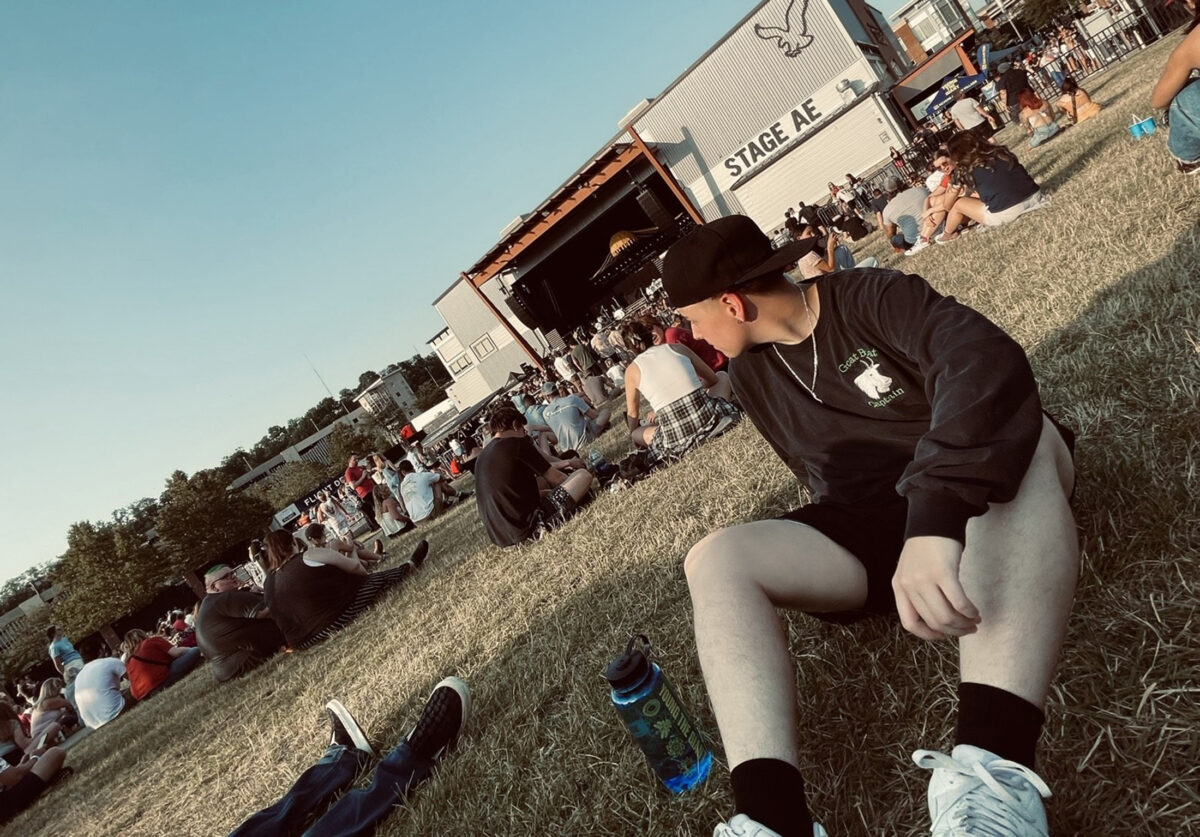Stephanie gave birth on a gray winter Thursday, Jan. 5, 2006, at UPMC Magee-Womens Hospital in Pittsburgh’s Oakland neighborhood. A sonogram had revealed the baby as a girl, so the mother and her husband gave her a name reflecting the family’s background. The child with wavy hair would be Annabella. In Italian, “Bella” translates as “beautiful.”
And so the parents dressed Annabella in pink dresses and bows and decorated her room pink and purple colors and with baby dolls. Typical girl stuff. As she grew, Annabella watched children’s television programs that showed girls in skirts and jumpers, their hair in pigtails. Sometimes the TV characters were princesses wearing gowns and tiaras, and other times they were superheroes with long, flowing locks and big beautiful eyes.
Such things did not appeal to Annabella. The parents bought her Barbie dolls, but Annabella wanted to play only with the male dolls. By age 4, Annabella had decided she no longer wanted to wear dresses. In fact, the mother’s attempts to dress the child in girls clothing resulted in battles that left the child in tears. Stephanie eventually relented. She didn’t want to fight with her daughter every day and have the child leave home miserable just because of a dress.
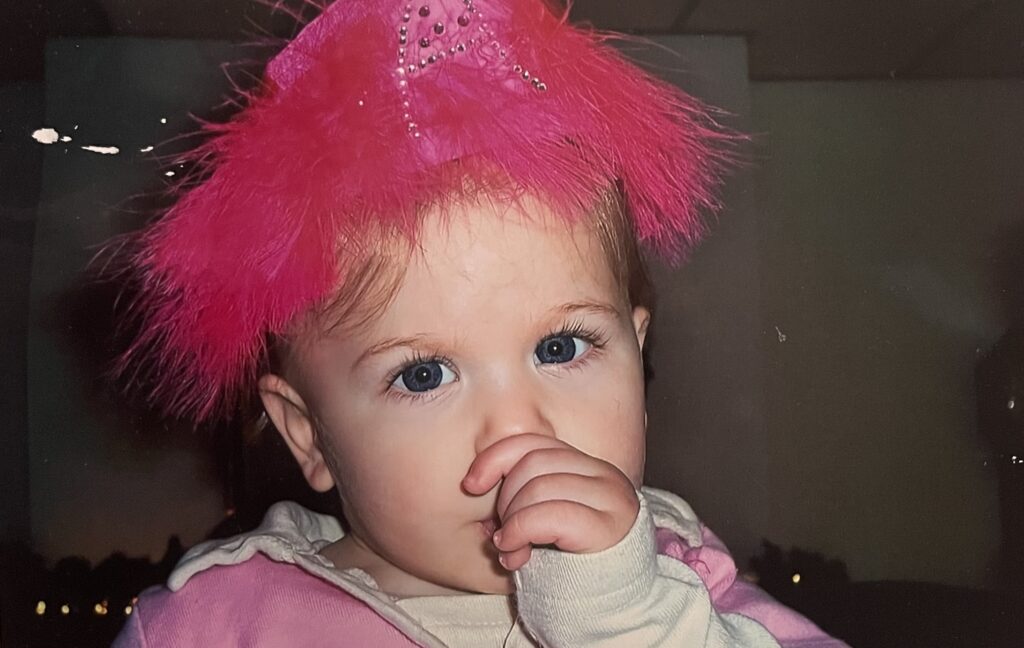
Stephanie knew something was different about her Annabella. Annabella knew it, too. It was all so confusing to her. No one seemed to understand. In elementary school, other children bullied Annabella. The child was pushed into lockers, mocked.
One autumn day, when Annabella was about 8 years old, she and her parents gathered on a couch in the living room of their South Side home and watched music videos on TV. The day was cool so they all wore hoodies. At one point, images of the British singer Boy George flashed across the screen as he performed with his band, Culture Club, the 1983 hit song “Karma Chameleon.”
In the video, Boy George wears heavy eye shadow, long braided hair, fingerless gloves and a costume with highlights of yellow, green, blue and red. His hand movements and dance style appear more traditionally feminine than masculine. Boy George caught the child’s attention.
“Mommy, why is that man wearing makeup?” Annabella asked.
Caught off guard, the mother wasn’t sure how to reply.
“He might want to be a girl,” she said. “You never know.”
“Well, Mommy, I want to be a boy,” the child declared.
The declaration didn’t really surprise the mother. She just figured Annabella was going through a tomboy phase and would eventually grow out of it.
Annabella, however, would not forget the moment. She realized she had a choice to be who she wanted to be — or who she felt she was destined to be. It proved profound and prophetic.
By the time she was in middle school, Annabella’s classmates were telling her, “You’re going to grow up to be gay, for sure — a lesbian.” Annabella didn’t really know; she was just a kid who understood a world in which you were either straight or gay, and because she didn’t want to date boys, she thought, “I must be a lesbian.” So that’s what she told people.
Some students were supportive; others were hostile.
Then Annabella started hearing another term — transgender. She looked it up on the internet and saw transgender people on YouTube videos and in other media. She thought, “Maybe that’s me.” It seemed a better fit than being a lesbian. She thought, “I don’t feel comfortable as a lesbian because I’m not female. Mentally, I’m not female, and I wish I wasn’t physically born that way.”
The middle school years proved difficult. Annabella’s parents divorced. She continued to face bullying at school. In the summer of 2019, as Annabella was preparing to enter ninth grade, she and her mother spent a lot of time outside, trying to feel better. They exercised and were careful to eat healthy food.
It was then that Annabella told her mother she had decided to make a change. A big change. Annabella told Stephanie she was transgender. From that point on, Annabella would be Anthony. Anthony wanted that change to be reflected in school records.
This was difficult for Stephanie to process. She knew very little about the transgender community. She’d seen trans people on a few of Maury Povich’s tabloid TV shows, but that’s about it. Besides, she knew her child. One day, the child would be interested in Pokemon cards, the next day Pokemon cards would be forgotten. Changing a name on school records was a permanent thing. Stephanie asked, “Are you sure?”
Anthony was insistent.
“This is who I am,” Anthony said. “You have to accept me. I know how you feel. It’s a big transition, but you have to give me some support here.”
Stephanie wondered, “Will this make my child happy?” The child always had more boyish features, she thought. “Will this be easier, to just identify as a boy?”
Thus began, for Stephanie, a grieving process. Looking back on that time, she says, “I felt that it was the death of my daughter. Giving up the name was very hard. It was picked very special for my child. And it was a female name.”
Stephanie also quickly came to understand the dangers faced by transgender people, and this caused her great concern. Trans people are stigmatized. They’re targets of hateful rhetoric. Hate is directed, too, at parents who accept their children as trans.
Then there was the matter of faith. The church Stephanie regularly attended condemned the trans community. Stephanie didn’t interpret the Bible in that way — “My God is not a hateful God,” she said. How do you reconcile such a conflict?
Stephanie and her former husband maintained a supportive relationship. He knew Stephanie was having difficulty with Anthony’s transition. During one conversation, he asked her, “Would you rather have a happy son or a dead daughter?”
The rates of attempted suicide among trans adolescents is alarmingly high. A survey by The Human Rights Campaign discovered more than half of transgender male teens reported attempting suicide in their lifetime. Family rejection, bullying and harassment add to the risk factors.
Her former husband’s comment hit home. Stephanie decided that no matter the questions or doubts she had about Anthony’s transition, she would help and love her child unconditionally.
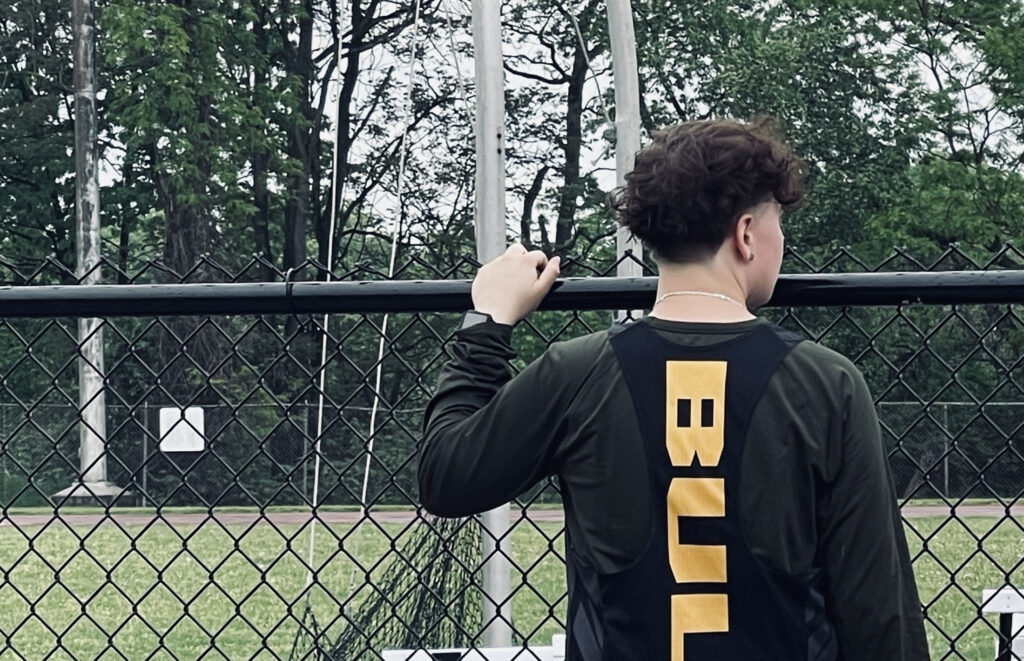
Today, Anthony describes his mother as his best friend. Anthony is 17 and a rising senior at Brashear High School. He and his parents requested only his first name be used for this story. Students who identify as members of the LGBTQ+ community face harassment, rejection and violence. According to the Centers for Disease Control and Prevention, queer youth consistently report higher rates of bullying. They are more likely to be threatened or injured with a weapon.
Anthony agreed to tell his story in hopes it will help others who are on the same path. “I just want to share my story and for others to think, ‘Wow, there’s somebody out there that’s the same as me, someone who feels the same way and knows the struggles of growing up this way.’”
Anthony now spends much of his free time playing and writing music. His songs explore the challenges of growing up as a trans man. He listens to Mac Miller and feels a connection to the late Pittsburgh musician because, like Anthony, Miller struggled with depression.
A year ago, Anthony began running. “If I have a hard time expressing my emotions, I just go out and run, and I feel so much better,” he said. He is now a member of Brashear’s cross country and track teams. The school’s large Gender Sexuality Alliance (formerly the Gay Straight Alliance) provides a supportive and safe environment.
Still, Anthony struggles with his self-image. He sometimes finds himself looking in the mirror and not seeing himself as he wants to be. He spends a lot of time picking out clothes and wondering if they look masculine enough. He lifts weights. In public, Anthony will wonder, “Are people looking at me? Do I look like a male?”
“I feel like every day, it’s tough,” Anthony said. “I have times where I get misgendered and people see me as female, and I think, ‘Wait, do I look female? Do I sound like a female? Is it my voice? My face?’ I’ll think, ‘I need to start taking hormones,’ and I beat myself up so bad about it.”
Anthony will soon turn 18, and when that happens he plans to begin hormone therapy. He believes it will “really bring things together and make me happy.” Not everyone in his life is on board with the idea.
“My mom and dad are whispering in my ear, ‘We don’t want you to do it, we think it’s unsafe, we don’t see why you would do that.’ So, do I want to make my parents happy or make myself happy? That’s a crossroad I have, especially since I’m getting closer to the age where I could do it. At the end of the day, I have to make a decision. My parents will have to accept it. I don’t want to be unhappy. I want to be me to the fullest extent. Confident and happy.”
As for Stephanie, she has found a new church — “a Christian church that accepts Anthony and loves Anthony and wants him to play music there,” she said.
She continues to worry about Anthony and the difficulties she knows he’ll face. State legislatures across the country continue to advance bills targeting members of the LGBTQ+ community; the American Civil Liberties Union puts the number of bills at 491. Some specifically target the rights of transgender people.
Trans people are four times more likely than cisgender people to experience violence and abuse, according to a 2021 study published by the Williams Institute at UCLA School of Law.
These are the worries of a mother who held her newborn baby 17 years ago and has continued to love the child through changes she often had difficulty understanding or accepting.
“I just think my child is the greatest human being I’ve ever met in my life,” she said. “Whatever is going to make this child happy, I’m going to support.”
• • •
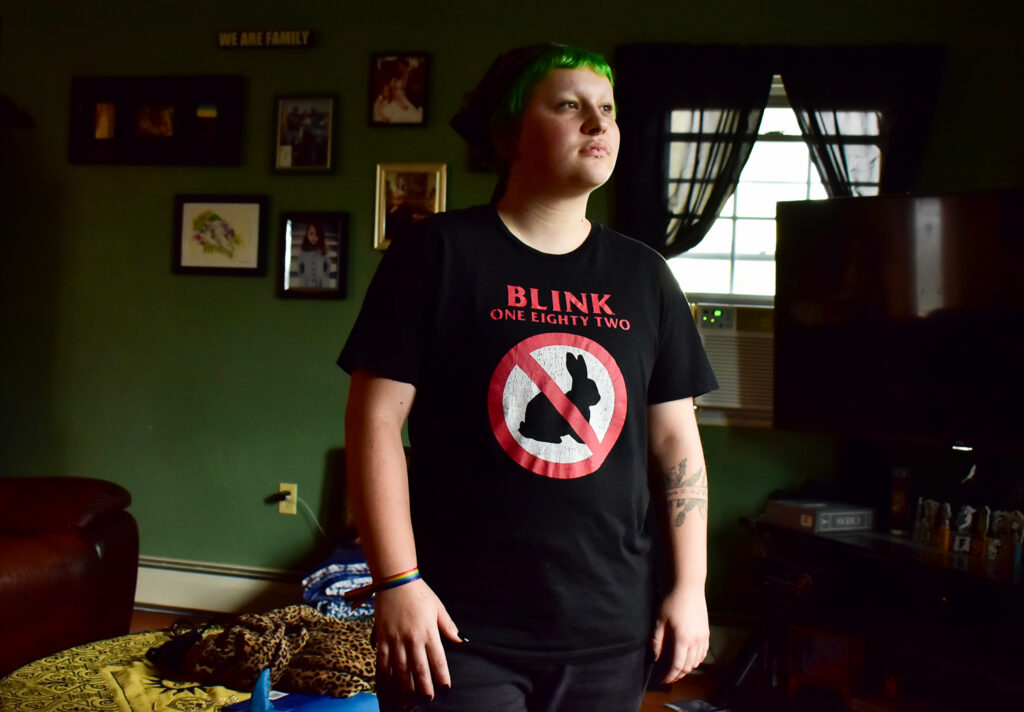
Andrew-Dean Heming’s mother, Robyn, was a “super mom,” very active in her children’s lives. Then she was injured in an auto accident and began taking pain killers. This led to an addiction that left her largely incapable of caring for her young family in rural Indiana County, so one of her children stepped in.
By age 8, Andrew-Dean was speaking to doctors about their (Andrew-Dean uses pronouns they/them/their) younger brother’s health issues, caused by hydrocephalus. Robyn would tell doctors everything was fine when Andrew-Dean knew everything definitely wasn’t fine. They’d fill in the details. As time passed, Andrew-Dean learned to complete school paperwork for their siblings and care for their mother and stepfather, who was also addicted to opioids. By age 11, Andrew-Dean was running the household.
Maturity came quickly. So did Andrew-Dean’s sense of identity. Assigned female at birth, Andrew-Dean grew up a tomboy. Other kids noticed, which led to bullying and name-calling. Stung by this treatment, Andrew-Dean came up with a solution: be more feminine.
It didn’t work. “There wasn’t a day in fourth and fifth grade that I did not get called some kind of slur,” Andrew-Dean would later recall. In sixth grade, Andrew-Dean came out as gay. This identity became the focus of one particular classmate. “You’re a dyke,” the classmate would say. Andrew-Dean had a girlfriend at the time, and the classmate would ask, “Who’s the guy in the relationship?”
The classmate hurled the most painful remark on the morning of Monday, June 13, 2016, on a bus transporting students to a summer camp at United High School in Armagh, Pa. Early the day before, a man armed with semi-automatic weapons had entered a gay nightclub in Orlando, Fla., and opened fire, killing 49 people and wounding 53. The gunman targeted the Pulse nightclub because of its gay clientele.
Andrew-Dean boarded the bus, found a seat and began texting a friend to express heartbreak over the attack. That’s when the unfriendly classmate approached. He tapped Andrew-Dean on the shoulder.
“Did you hear about the shooting?” the classmate asked.
“Yes,” Andrew-Dean replied.
“Were you there?” the classmate said. “You should have been. You should have died with them.”
The comment stunned and devastated Andrew-Dean.
During this time, Robyn’s life spiraled downward. Andrew-Dean and their siblings moved in with maternal grandparents Ralph and Merianne Heming, who lived in Clyde, Pa. The children saw their mother when she delivered Christmas presents in December 2016. Then, for four months, nothing. Andrew-Dean’s grandmother did not want the children to see their mother in her current drugged-out state.
Andrew-Dean had become very close with their grandfather Ralph. A burly man who stood 6-foot-2, Ralph was, in Andrew-Dean’s words, a “gentle giant.” He and Merianne lived behind a fire hall in Clyde. Ralph had turned the couple’s lot into a playground for what he called his “big toys” — backhoes, high-lifts, dump trucks, fork lifts. He loved repairing these machines and taught Andrew-Dean how to disassemble engines, diagnose and fix problems, then reassemble them. He also taught Andrew-Dean to weld.
Then, on March 5, 2017, Andrew-Dean received news that Robyn had died of an overdose. Ralph and Merianne quickly left to visit the trailer near Blairsville that had served as their daughter’s home. Andrew-Dean was left alone with sleeping siblings to process their mother’s passing. “It was emptiness,” Andrew-Dean recalled. “I cried, but it didn’t feel like I was crying.”
The following fall, Andrew-Dean entered ninth grade and confided to a high school counselor that they were transgender. Andrew-Dean says the counselor then outed them for being a safety risk. Already Andrew-Dean was receiving abuse because of their mom’s overdose death. Things got worse.
Andrew-Dean got into a lot of fights. “I was raised to fight back and defend myself,” they said, “and in turn I was labeled a bad child who didn’t care about school, didn’t care about anything. Mind you, my entire high school career I had a 4.0 grade point average. I graduated with honors. I was on the dean’s list my entire high school career. I had a bad home life, so I knew I had to work hard in school to get out of that cycle of poverty and addiction.”
Problems loomed as graduation approached. Officials at River Valley High School said they wouldn’t announce Andrew-Dean’s preferred name during the ceremony, Andrew-Dean said. They wanted to use the name assigned to Andrew-Dean at birth — a “dead name.” That part of Andrew-Dean’s life, like the past identity as female, is buried. Resurrecting it at a graduation ceremony would only cause pain, Andrew-Dean said. Besides, no one at the school knew Andrew-Dean by any other name.
“I won that fight,” Andrew-Dean said. “It took three weeks. I went to a school board meeting and said, ‘No, I’m not letting you call me by my dead name. This is very important to me.’”
In addition, Andrew-Dean was told to wear a cap and gown that was the color assigned to female graduates. Eventually, students were all assigned to wear black caps and gowns.
Andrew-Dean is now an art education major at Indiana University of Pennsylvania. Part of that education is teaching art to preschool children at a Montessori school. Students there are sometimes curious about Andrew-Dean’s dress and appearance and ask questions, but they do so in a curious way and are not rude, Andrew-Dean said.
“They just want to know, ‘Why don’t you have hair?’ They ask about my piercings or tattoos or nails. My students are preschoolers. To them, it doesn’t matter; they don’t care; they just want to make silly pictures and listen to me read a book to them.”
Andrew-Dean said it’s important for students to see members of the LGBTQ+ community working as teachers, to see equity and inclusion on display in the classroom. “It can be life-saving for some students when they realize there is another person like them in a position of authority,” Andrew-Dean said. “It’s the representation I wish I had as a kid — a teacher who’s openly and proudly themselves in a learning environment and who has an open door to students going through similar things they did.
“We are real people that walk with you every day,” Andrew-Dean continued. “You pass us on your way to work. You stand next to us in line, you sit next to us in restaurants. We are here. Just because I look differently and do different things doesn’t mean I don’t deserve the same respect as you do.”
• • •
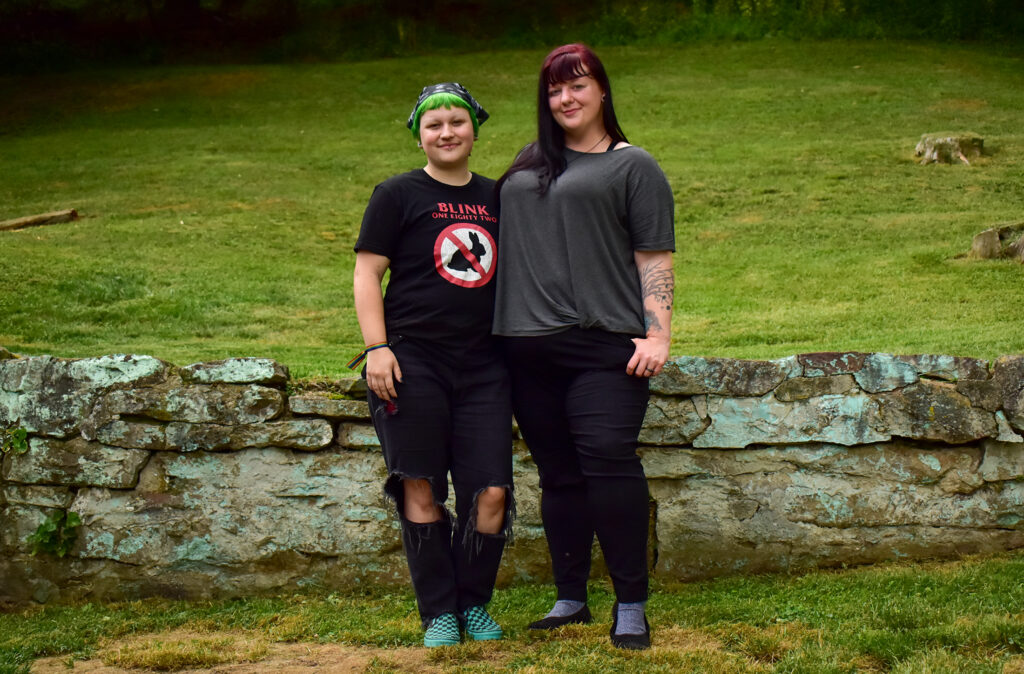
Andrew-Dean now lives in Ernest, Pa., with a close friend, Paige Shanner, and Paige’s family. Paige is a former girlfriend of Robyn’s and has always been a sort of “second mom” to Andrew-Dean.
Paige knows the challenges trans children face. Her child Aeven, 13, assigned female at birth, now identifies as nonbinary. The family keeps a list of family members’ preferred pronouns on the refrigerator, just above a reminder to do chores.
One recent afternoon, Paige and Aeven sat around an island in the kitchen and discussed the issues they’d faced as a family that doesn’t fit the norm in a rural Pennsylvania town.
“Middle school is an especially difficult time,” Paige said. “There’s so much dating drama. Everybody has crushes, girlfriends and boyfriends. The number of people upset that Aeven doesn’t like boys is insane.”
Aeven gave an example: “One guy randomly came up to me in the hallway and said to me, ‘I don’t think you should be gay.’ He didn’t say it mean, he just said it like he was giving advice. Things like that happen a lot.”
Classmates have told Aeven, “You’re going to hell.” Another suggested conversion therapy. And there are slurs — Aeven says they are hurled their way on a daily basis. In the cafeteria, a classmate dumped milk on the head of one queer student.
A classmate told Aeven, “I’m homophobic but not toward you,’” Aeven said. The comment made no sense to Aeven. “You can’t just choose who you’re homophobic to.”
Adding to the problem is the small number of queer students at Aeven’s school. They’re a minority, and minorities get bullied, Aeven said.
“There are a lot of kids running around with rebel flag hats that don’t know what they’re wearing and calling my kid a faggot all day,” Paige said. “They think it’s cute and funny, and they don’t really know what that means. They know it’s offensive and inflammatory and they just run with it. I really don’t think it’s because they hate gay people. If they looked into it, it’s just people having a relationship with other people.”
But some people do care. She sees the social media rants about the queer community and is aware of the statistics showing that members of the LGBTQ+ community face greater risks of being physically attacked.
“It’s a hot button issue now,” she said. “It’s definitely something people are using in a way that’s not appropriate and not in the spirit of helping people or caring about these kids in any way. It’s just using them as a stepping stone and a means of getting what someone wanted.”
“My biggest fear is that somebody is going to kill my kid because they’re making assumptions about them,” Paige added.
Indiana recently hosted its first Pride festival, which attracted about 300 people, she said. Paige helped organize the event, which took place despite some opposition. “It’s quite notable that, of all of the people who had something negative to say, none of them could articulate what it was they didn’t want to see. No one could spell it out.” Was it the drag show, she wondered. If so, what about it was offensive? The men in dresses?
“What could we get rid of that would make it OK?” she asked. “Or was it just us existing?”
She echoed a theme brought up by Andrew-Dean several minutes earlier — that members of the LGBTQ+ community need to seek each other out, to “find their tribe.”
“Knowing other people who have gone through similar experiences, someone they can go to, is everything to them,” Paige said. “Having that support network, knowing you’re not alone, is key.”
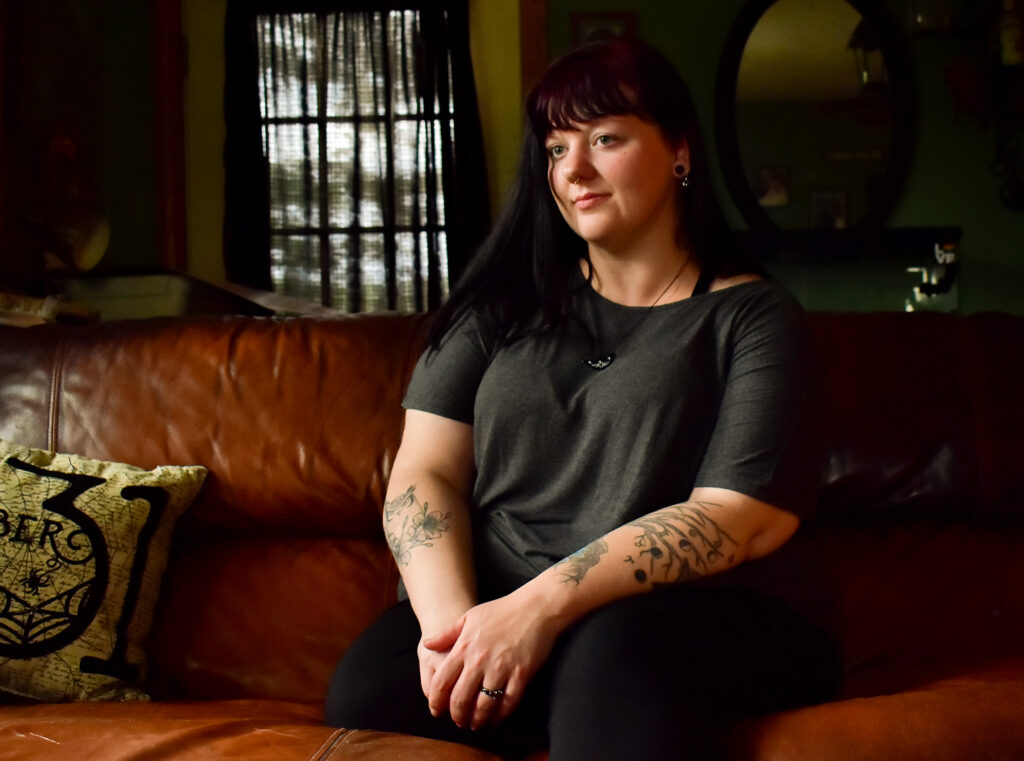
RELATED STORY: Here are resources for transgender youth and their families in this region
RELATED STORY: Community voices: On being transgender in America this week
Steve is a photojournalist and writer for the Pittsburgh Post-Gazette, but he is currently on strike and working as a Union Progress co-editor. Reach him at smellon@unionprogress.com.

